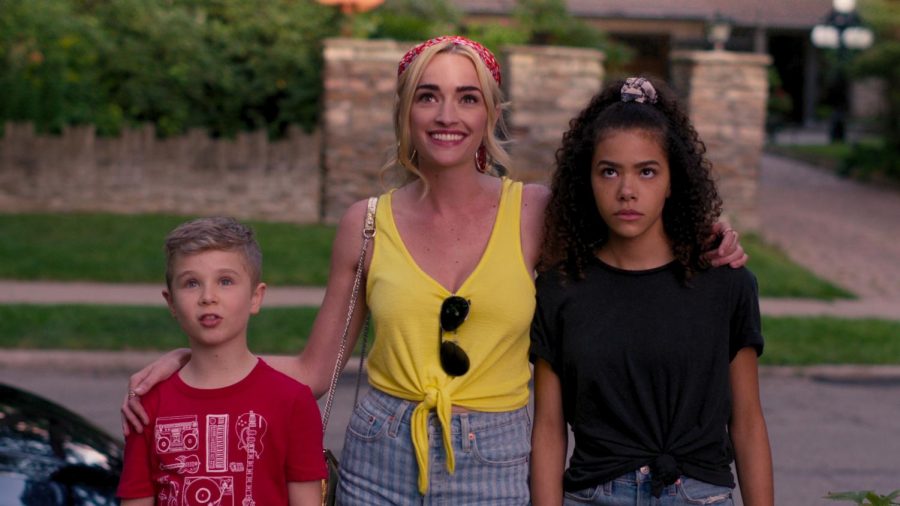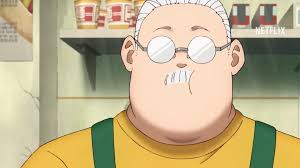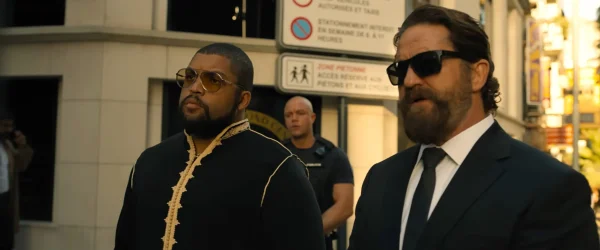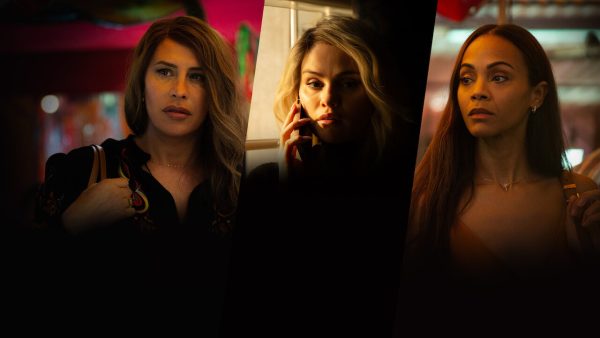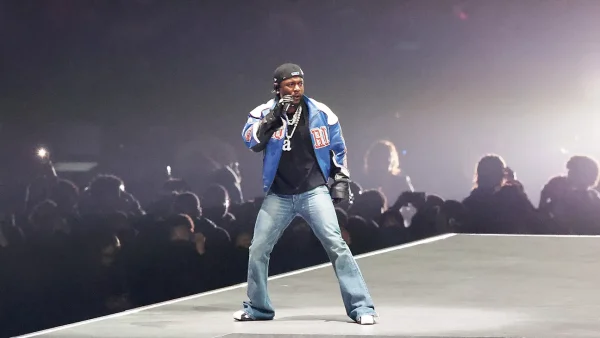Ginny & Georgia: Netflix’s new teen series hits and misses all over
POV: Your boyfriend performs a tap number to the birthday song on your 16th birthday, in front of the whole school. It runs for five minutes straight. What do you do?
I can imagine the sheer form of second-hand embarrassment I felt in that moment being in Ginny’s shoes (ha, no pun intended). But I digress. To be quite honest, regardless of the cringe-worthiness of that moment, I also found it quite adorable.
If you’ve read this far, then welcome to the world of Netflix’s new hit series: Ginny and Georgia.
Simply put, an amalgamation of every single movie trope ever invented combined into a coming of age teen angst show about the interesting dynamic of mother-daughter duo, Virginia (Ginny) and Georgia Miller.
Spoiler Alert: When single mother Georgia Miller, played by (Brianna Howey) moves to Massachusetts with her two kids Virginia (Antonia Gentry) and Austin (Diesel la Torraca) in hopes of getting a fresh start after the tragic yet mysterious death of her husband, the new neighbors in town are welcomed with old secrets that could reveal Georgia’s messy past.
Georgia’s single motherhood takes quite a plight as she navigates juggling two kids and the traumas of her own childhood. From escaping an abusive father and a drug-addicted mother, Georgia finds freedom in starting over, even if that means having to move from state to state.
Alongside Georgia, we have Ginny. With being the new kid in town, she faces the faith of not wanting to follow in her mother’s footsteps.
Season one follows Ginny as she tries to fit in as being the ‘new kid’. She befriends the neighbors next door, Maxine and Marcus who happen to be twins. At school, Maxine introduces Ginny to her group of friends who seem to be popular. The clique end up coining their nickname as ‘MANG’ which consists of Maxine(Sara Waisglass), Abby (Katie Douglas), Norah (Chelsea Clark), and our main star Ginny. As with any friend group, everyone is painted with certain character traits. Maxine is the main leader, Abby follows in a close second, Norah’s life seems perfect, and Ginny who’s complicated.
In episode two of season one, Norah, Abby, and Ginny go shopping. The girls decide to shoplift. In an effort to try and fit in with the new clique, Ginny participates. The conundrum ends with the store manager calling security, but with a slight bias on Ginny. Why that occurs is because even though Ginny is no lighter than the girls, her being half black causes a rift. As Georgia arrives at the incident, she is riled that her daughter would pull something like that off.
The Race Problem
An article by readysteadycut.com states that “Georgia is called about the shoplifting; she reckons her daughter is being singled out for being black despite her other friends stealing as well. She accuses the store owner of racial profiling and then pays for clothes.” What makes viewers question this scene is the people Ginny surrounds herself with. At first glance you can’t blame her as all she ever wanted was to make friends for what seems like the 100th time since she’s constantly moving around. On the other hand, her so-called “friends”, threw her name under the bus. Big red flag. While the show does talk about racial profiling with this scene, in particular, nothing is pushed forth to make a statement other than, She’s seen as an outcast within her community and social circle. Most incidents of racial profiling can turn deadly but the downgraded version that the show depicted in this scene was only suitable especially since Ginny is racially ambiguous.
The next red flag is how uncomfortable it is listening to the girls’ introduction when they first meet Ginny in the cafeteria. As she sits down, everyone bombards her with questions relating to black culture. Now, this could be a joke, but the overgeneralization of race in this show is alarming.
For instance, in one scene the girls invite Ginny over and Abby brings makeup to help Ginny get ready for a party. In the bag is makeup that seems ridiculously darker than Ginny’s skin tone. How dark can the girl be if she’s 50 percent black? Ginny straightens her hair for a party and one character named Brodie makes a remark stating, “If you had an ass, you’d be perfect. It’s weird that you don’t.” This comment represents the show’s constant use of race in a down-grading way and how since Ginny’s half black, she’s supposed to have a body type that fits society’s stereotypical description of a black woman but all bodies come in different shapes and forms.
When Ginny and Hunter have an argument that ensues after Hunter wins the essay contest, Hunter lashes out on Ginny. An article from screenrant.com writes, “Hunter and Ginny have a big argument in the episode “Check One, Check Other” after Hunter wins an essay contest and Ginny loses because she performed a spoken word poem instead of a traditional essay. Ginny knows that her teacher is racist because of the way that he treats her with disrespect when she speaks up in class. He even mentions an offensive word and then says, “Right, Ginny?” Hunter says he won the contest so the teacher isn’t racist”. Hunter’s reaction was immature, as he did not try to understand how Ginny felt. Although Ginny’s format was wrong, her spoken word poem capsulized the idea of the project. The “Right, Ginny” remark points out Mr.Gitten’s tendency to single Ginny out since she’s the only black girl in her class.
After the essay contest, in which Ginny was clearly robbed partly because of her teacher’s biased views on race, she confronts him. In an effort to explain himself, Ginny’s teacher responds stating, “I am not a racist. I voted for Obama in 2008”. This line highlights exactly what someone with racist tendencies would say. Mr.Gitten’s constant jab at Ginny’s race is a direct reflection of that. Ginny’s response to this is to try and blackmail him into writing a letter of recommendation for her. Her response wasn’t practical and Mr.Gitten’s review on Ginny’s essay being too “unconventional” is just a hint that she’s too “black” and “outspoken”.
Bullying
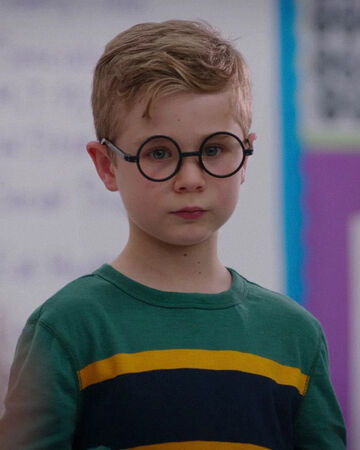
One thing teenagers can relate to in terms of this show is: Everyone has problems. Every. Single. Person. Ginny’s little brother Austin experiences bullying at school. He gets bullied by one of his classmates, Zach. But as the series goes on, we start to see why Zach bullies Austin.
Austin’s bullying at school turns violent when he stabs Zach with a pencil. The incident occurred after Zach made an inappropriate comment about Georgia and Mayor Paul. Side note: They start dating in the show. As Austin boils over his tipping point, in an attempt to retaliate, he stabs Zach. He gets sent to the principal’s office with Georgia and they suspend him for a week. Zach although the victim, does not get any punishments especially considering the fact that he was initially the cause of the incident.
This situation shows an example of how everyone in this show has problems to deal with. Most times a bully is a result of a problem that hasn’t been resolved or insecurity. With Zach, he only picks on Austin because of a problem. That problem is revealed in the last episode and shows that Zach’s father is very ill. His mother, Cynthia who also has a gripe with Georgia, has a lot on her shoulders. Zach’s situation at home is reflected in how he interacts with Austin at school. He might be feeling upset about his father being ill and doesn’t have a healthy way of expressing it so instead, he bullies someone else for attention. It’s almost like a cry out for help but he displays it in a harmful way. Georgia and Austin’s principal discuss the potential need for Austin to get therapy. Although this is a great suggestion, we do not see this plan follow-through in season one.
Relationships
Within the first episode of the show, Ginny first interacts with Maxine’s brother, Marcus. The two have an awkward exchange and end up sleeping together. There is clear chemistry between the two, especially with Marcus’s classic “‘Bad boy” trope. Apart from Marcus and Ginny’s one-night stand, Hunter takes a liking to Ginny. While Marcus and Ginny have a fast-paced, and passionate love, Hunter’s respect towards Ginny is admirable.
An article by Screenrant.com writes, “In one embarrassing moment, Ginny tripped and dropped her tampon on Hunter’s desk in the middle of class. Mortified, Ginny was hiding from him afterward, but he adorably approached her and gave her a bag of chips,” and “He had a sister and knew what she liked to snack on when she was having her period. The gesture was sweet and proved that he was far more mature than most guys his age.” Hunter definitely takes the trophy of being a sweet guy to Ginny, despite their falling out.
Ginny’s tendency of not being honest and transparent with Hunter also contributed to the downfall of her relationship with Hunter. In the season finale, Hunter and the group ‘MANG’ reveal Ginny and Marcus’ secret hookup which ultimately changes the trajectory of Ginny and the relationship she’s built with her friends.
 In an interview with tvline.com, Antonia Gentry stated, “ If I were Hunter, I would just be kind of done with it. I feel like they are better off as friends, maybe, than in a relationship with each other, just because Ginny really has so much she needs to figure out.” Hunter respectfully didn’t deserve Ginny as he treated her with nothing but care and respect (Excluding the essay contest).
In an interview with tvline.com, Antonia Gentry stated, “ If I were Hunter, I would just be kind of done with it. I feel like they are better off as friends, maybe, than in a relationship with each other, just because Ginny really has so much she needs to figure out.” Hunter respectfully didn’t deserve Ginny as he treated her with nothing but care and respect (Excluding the essay contest).
Ginny and Georgia explore a variety of relationships. Not only in regards to Ginny but her surrounding peers. Maxine’s character introduces the hardships of dating in the LGBTQ+ community.
Apart from Maxine’s bubbly and unapologetic personality, when it comes to her sexuality as a member of the LGBTQ+ community, her attitude reveals just how scary rejection is. In one attempt, Maxine assumes that a girl in her dance class is gay and tries to pursue her, but it goes wrong when Julie explicitly states she is straight. The depiction of how this impacts Maxine shows a real example of rejection. This is one of the few moments “Ginny and Georgia” gets a thumbs up because this is an issue people, and teens especially face.
This arc does get a happy yet sad ending. Maxine ends up liking another girl named Sophie. At first, Maxine is nervous and anxious but the two end up together. A review from Buzzfeed states, “I think my favorite moment between them is in episode seven. Max plans on losing her virginity to Sophie (even making a sex playlist of 86 songs, because she’s Max), but when the moment comes, she’s just not ready. Sophie is super understanding and it’s just a really sweet scene.”
Although Maxine and Sophie hit it off, the depiction of heartbreak when Sophie breaks up with Maxine is felt across the board especially since Maxine, like anyone else, craves a happy long-lasting relationship but that isn’t always the case.
Self-Harm
One major issue that is addressed in Ginny and Georgia is self-harm. Ginny is seen several times throughout the series, inflicting harm on herself. With the show’s typical high school experience, behind-the-scenes characters like Ginny struggle to cope with the stressors of being a teenager.
In season one episode eight, Ginny sees her mother and biological father sleeping together. she storms to her bedroom and in the midst of feeling stressed and anxious, she grabs a lighter and burns herself. When Marcus finds her in the act, she begins to deflect at him. Ginny’s harmful exchange of words towards Marcus drives him away and he later gets into a motorcycle accident.
This scene is a perfect example of saying things you don’t mean when you’re angry. We all have emotions but when we allow them to get the best of us, the consequences that follow can be extremely hurtful.
While the show does a great job of getting it’s viewers hooked, there are many aspects that need to be improved. With a renewal for a second season, there is a possibility for deeper character development and continuing the conversation of important social issues.
Your donation will support the student journalists of Parkdale High School. Your contribution will allow us to cover our annual website hosting costs and publish some printed editions, as well.
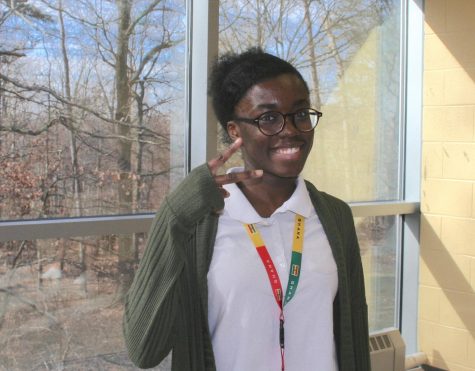
Amanda Addo is a senior, and this is her second year on the Paw Print staff. In her time of work, she's a writer and Social Media Manager. She enjoys writing...

